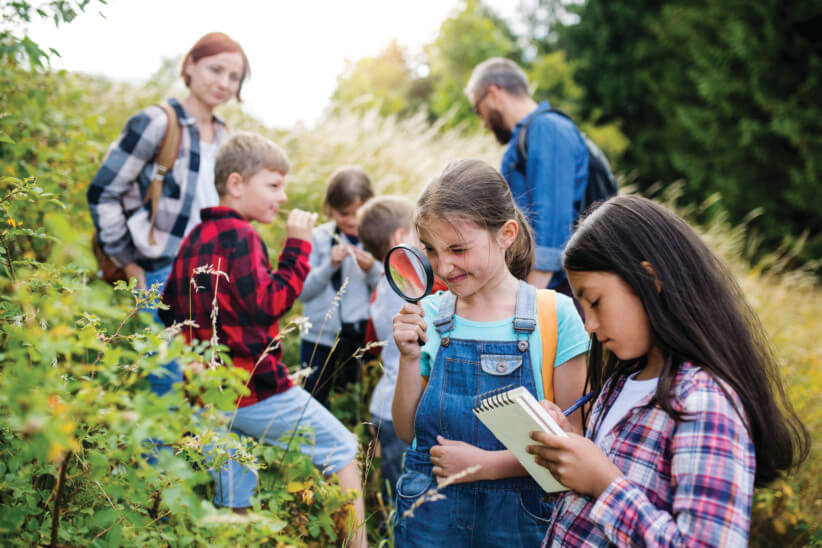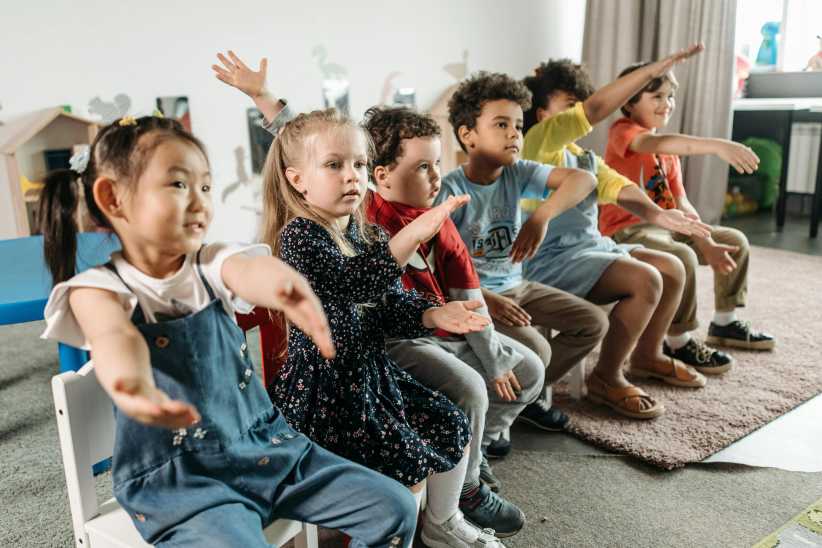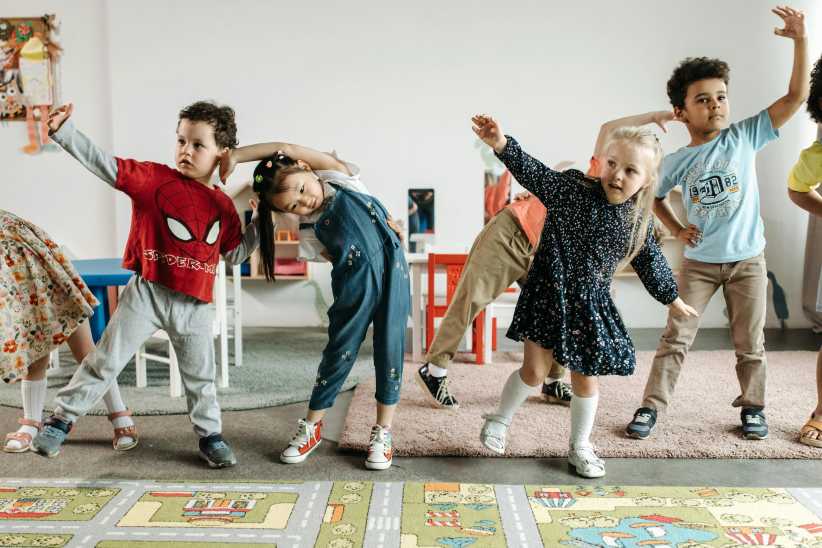Capitol Debate Summer Camps
<p dir="ltr" style="line-height: 1.38; margin-top: 0pt; margin-bottom: 0pt;"><span style="font-size: 12pt; font-family: 'Times New Roman',serif; color: #000000; background-color: transparent; font-weight: 400; font-style: normal; font-variant: normal; text-decoration: none; vertical-align: baseline; white-space: pre-wrap;">Capitol Debate warmly welcomes middle and high school students to our transformative debate and public speaking programs. Our summer camps are gateways to personal growth, skill development, and unforgettable memories, blending educational excellence with the joy of summer adventure.</span><span style="font-size: 12pt; font-family: 'Times New Roman',serif; color: #000000; background-color: transparent; font-weight: 400; font-style: normal; font-variant: normal; text-decoration: none; vertical-align: baseline; white-space: pre-wrap;"><br /><br /></span></p>
<p dir="ltr" style="line-height: 1.38; margin-top: 0pt; margin-bottom: 0pt;"><span style="font-size: 12pt; font-family: 'Times New Roman',serif; color: #000000; background-color: transparent; font-weight: 400; font-style: normal; font-variant: normal; text-decoration: none; vertical-align: baseline; white-space: pre-wrap;">Our curriculum is designed to meticulously develop both speaking and debating skills, ensuring students emerge as confident communicators and thinkers. Here's a closer look at our focused training approach:</span><span style="font-size: 12pt; font-family: 'Times New Roman',serif; color: #000000; background-color: transparent; font-weight: 400; font-style: normal; font-variant: normal; text-decoration: none; vertical-align: baseline; white-space: pre-wrap;"><br /><br /></span></p>
<p dir="ltr" style="line-height: 1.38; margin-top: 0pt; margin-bottom: 0pt;">&nbsp;</p>
<p dir="ltr" style="line-height: 1.38; margin-top: 0pt; margin-bottom: 0pt;"><span style="font-size: 12pt; font-family: 'Times New Roman',serif; color: #000000; background-color: transparent; font-weight: bold; font-style: normal; font-variant: normal; text-decoration: underline; -webkit-text-decoration-skip: none; text-decoration-skip-ink: none; vertical-align: baseline; white-space: pre-wrap;">In Public Speaking, our focus areas include:</span></p>
<p dir="ltr" style="line-height: 1.38; margin-top: 12pt; margin-bottom: 0pt;"><span style="font-size: 12pt; font-family: 'Times New Roman',serif; color: #000000; background-color: transparent; font-weight: bold; font-style: normal; font-variant: normal; text-decoration: none; vertical-align: baseline; white-space: pre-wrap;">Voice Projection:</span><span style="font-size: 12pt; font-family: 'Times New Roman',serif; color: #000000; background-color: transparent; font-weight: 400; font-style: normal; font-variant: normal; text-decoration: none; vertical-align: baseline; white-space: pre-wrap;"> Teaching students to speak clearly and audibly.</span></p>
<p dir="ltr" style="line-height: 1.38; margin-top: 12pt; margin-bottom: 0pt;"><span style="font-size: 12pt; font-family: 'Times New Roman',serif; color: #000000; background-color: transparent; font-weight: bold; font-style: normal; font-variant: normal; text-decoration: none; vertical-align: baseline; white-space: pre-wrap;">Voice Modulation:</span><span style="font-size: 12pt; font-family: 'Times New Roman',serif; color: #000000; background-color: transparent; font-weight: 400; font-style: normal; font-variant: normal; text-decoration: none; vertical-align: baseline; white-space: pre-wrap;"> Varying pitch and tone for emphasis and effect.</span></p>
<p dir="ltr" style="line-height: 1.38; margin-top: 12pt; margin-bottom: 0pt;"><span style="font-size: 12pt; font-family: 'Times New Roman',serif; color: #000000; background-color: transparent; font-weight: bold; font-style: normal; font-variant: normal; text-decoration: none; vertical-align: baseline; white-space: pre-wrap;">Articulation:</span><span style="font-size: 12pt; font-family: 'Times New Roman',serif; color: #000000; background-color: transparent; font-weight: 400; font-style: normal; font-variant: normal; text-decoration: none; vertical-align: baseline; white-space: pre-wrap;"> Ensuring clarity and precision in speech.</span></p>
<p dir="ltr" style="line-height: 1.38; margin-top: 12pt; margin-bottom: 0pt;"><span style="font-size: 12pt; font-family: 'Times New Roman',serif; color: #000000; background-color: transparent; font-weight: bold; font-style: normal; font-variant: normal; text-decoration: none; vertical-align: baseline; white-space: pre-wrap;">Passion:</span><span style="font-size: 12pt; font-family: 'Times New Roman',serif; color: #000000; background-color: transparent; font-weight: 400; font-style: normal; font-variant: normal; text-decoration: none; vertical-align: baseline; white-space: pre-wrap;"> Encouraging expressive, enthusiastic delivery.</span></p>
<p dir="ltr" style="line-height: 1.38; margin-top: 12pt; margin-bottom: 0pt;"><span style="font-size: 12pt; font-family: 'Times New Roman',serif; color: #000000; background-color: transparent; font-weight: bold; font-style: normal; font-variant: normal; text-decoration: none; vertical-align: baseline; white-space: pre-wrap;">Use of Emphasis and Pauses:</span><span style="font-size: 12pt; font-family: 'Times New Roman',serif; color: #000000; background-color: transparent; font-weight: 400; font-style: normal; font-variant: normal; text-decoration: none; vertical-align: baseline; white-space: pre-wrap;"> Enhancing speech dynamics for impact.</span></p>
<p dir="ltr" style="line-height: 1.38; margin-top: 12pt; margin-bottom: 0pt;"><span style="font-size: 12pt; font-family: 'Times New Roman',serif; color: #000000; background-color: transparent; font-weight: bold; font-style: normal; font-variant: normal; text-decoration: none; vertical-align: baseline; white-space: pre-wrap;">Confidence:</span><span style="font-size: 12pt; font-family: 'Times New Roman',serif; color: #000000; background-color: transparent; font-weight: 400; font-style: normal; font-variant: normal; text-decoration: none; vertical-align: baseline; white-space: pre-wrap;"> Building self-assurance in public speaking.</span></p>
<p><strong id="docs-internal-guid-059348ae-7fff-6219-67e5-728bc2a0e47d" style="font-weight: normal;">&nbsp;</strong></p>
<p dir="ltr" style="line-height: 1.38; margin-top: 0pt; margin-bottom: 0pt;"><span style="font-size: 12pt; font-family: 'Times New Roman',serif; color: #000000; background-color: transparent; font-weight: bold; font-style: normal; font-variant: normal; text-decoration: underline; -webkit-text-decoration-skip: none; text-decoration-skip-ink: none; vertical-align: baseline; white-space: pre-wrap;">For Body Language, we emphasize:</span></p>
<p dir="ltr" style="line-height: 1.38; margin-top: 12pt; margin-bottom: 0pt;"><span style="font-size: 12pt; font-family: 'Times New Roman',serif; color: #000000; background-color: transparent; font-weight: bold; font-style: normal; font-variant: normal; text-decoration: none; vertical-align: baseline; white-space: pre-wrap;">Eye Contact:</span><span style="font-size: 12pt; font-family: 'Times New Roman',serif; color: #000000; background-color: transparent; font-weight: 400; font-style: normal; font-variant: normal; text-decoration: none; vertical-align: baseline; white-space: pre-wrap;"> Engaging with the audience visually.</span></p>
<p dir="ltr" style="line-height: 1.38; margin-top: 12pt; margin-bottom: 0pt;"><span style="font-size: 12pt; font-family: 'Times New Roman',serif; color: #000000; background-color: transparent; font-weight: bold; font-style: normal; font-variant: normal; text-decoration: none; vertical-align: baseline; white-space: pre-wrap;">Hand Gestures:</span><span style="font-size: 12pt; font-family: 'Times New Roman',serif; color: #000000; background-color: transparent; font-weight: 400; font-style: normal; font-variant: normal; text-decoration: none; vertical-align: baseline; white-space: pre-wrap;"> Using gestures to reinforce messages.</span></p>
<p dir="ltr" style="line-height: 1.38; margin-top: 12pt; margin-bottom: 0pt;"><span style="font-size: 12pt; font-family: 'Times New Roman',serif; color: #000000; background-color: transparent; font-weight: bold; font-style: normal; font-variant: normal; text-decoration: none; vertical-align: baseline; white-space: pre-wrap;">Body Movements:</span><span style="font-size: 12pt; font-family: 'Times New Roman',serif; color: #000000; background-color: transparent; font-weight: 400; font-style: normal; font-variant: normal; text-decoration: none; vertical-align: baseline; white-space: pre-wrap;"> Incorporating movement for emphasis.</span></p>
<p dir="ltr" style="line-height: 1.38; margin-top: 12pt; margin-bottom: 0pt;"><span style="font-size: 12pt; font-family: 'Times New Roman',serif; color: #000000; background-color: transparent; font-weight: bold; font-style: normal; font-variant: normal; text-decoration: none; vertical-align: baseline; white-space: pre-wrap;">Body Postures:</span><span style="font-size: 12pt; font-family: 'Times New Roman',serif; color: #000000; background-color: transparent; font-weight: 400; font-style: normal; font-variant: normal; text-decoration: none; vertical-align: baseline; white-space: pre-wrap;"> Maintaining a confident, approachable stance.</span></p>
<p><strong style="font-weight: normal;">&nbsp;</strong></p>
<p dir="ltr" style="line-height: 1.38; margin-top: 0pt; margin-bottom: 0pt;"><span style="font-size: 12pt; font-family: 'Times New Roman',serif; color: #000000; background-color: transparent; font-weight: bold; font-style: normal; font-variant: normal; text-decoration: underline; -webkit-text-decoration-skip: none; text-decoration-skip-ink: none; vertical-align: baseline; white-space: pre-wrap;">We train students in:</span></p>
<p dir="ltr" style="line-height: 1.38; margin-top: 12pt; margin-bottom: 0pt;"><span style="font-size: 12pt; font-family: 'Times New Roman',serif; color: #000000; background-color: transparent; font-weight: bold; font-style: normal; font-variant: normal; text-decoration: none; vertical-align: baseline; white-space: pre-wrap;">Powerful Openings:</span><span style="font-size: 12pt; font-family: 'Times New Roman',serif; color: #000000; background-color: transparent; font-weight: 400; font-style: normal; font-variant: normal; text-decoration: none; vertical-align: baseline; white-space: pre-wrap;"> Captivating the audience from the start.</span></p>
<p dir="ltr" style="line-height: 1.38; margin-top: 12pt; margin-bottom: 0pt;"><span style="font-size: 12pt; font-family: 'Times New Roman',serif; color: #000000; background-color: transparent; font-weight: bold; font-style: normal; font-variant: normal; text-decoration: none; vertical-align: baseline; white-space: pre-wrap;">Clear Statement of Claims:</span><span style="font-size: 12pt; font-family: 'Times New Roman',serif; color: #000000; background-color: transparent; font-weight: 400; font-style: normal; font-variant: normal; text-decoration: none; vertical-align: baseline; white-space: pre-wrap;"> Presenting arguments concisely.</span></p>
<p dir="ltr" style="line-height: 1.38; margin-top: 12pt; margin-bottom: 0pt;"><span style="font-size: 12pt; font-family: 'Times New Roman',serif; color: #000000; background-color: transparent; font-weight: bold; font-style: normal; font-variant: normal; text-decoration: none; vertical-align: baseline; white-space: pre-wrap;">Backing Claims with Reasoning and Supporting Materials:</span><span style="font-size: 12pt; font-family: 'Times New Roman',serif; color: #000000; background-color: transparent; font-weight: 400; font-style: normal; font-variant: normal; text-decoration: none; vertical-align: baseline; white-space: pre-wrap;"> Strengthening arguments with evidence.</span></p>
<p dir="ltr" style="line-height: 1.38; margin-top: 12pt; margin-bottom: 0pt;"><span style="font-size: 12pt; font-family: 'Times New Roman',serif; color: #000000; background-color: transparent; font-weight: bold; font-style: normal; font-variant: normal; text-decoration: none; vertical-align: baseline; white-space: pre-wrap;">Extemporaneous Speaking:</span><span style="font-size: 12pt; font-family: 'Times New Roman',serif; color: #000000; background-color: transparent; font-weight: 400; font-style: normal; font-variant: normal; text-decoration: none; vertical-align: baseline; white-space: pre-wrap;"> Developing the ability to speak spontaneously and coherently.</span></p>
<p><strong style="font-weight: normal;">&nbsp;</strong></p>
<p dir="ltr" style="line-height: 1.38; margin-top: 0pt; margin-bottom: 0pt;"><span style="font-size: 12pt; font-family: 'Times New Roman',serif; color: #000000; background-color: transparent; font-weight: bold; font-style: normal; font-variant: normal; text-decoration: underline; -webkit-text-decoration-skip: none; text-decoration-skip-ink: none; vertical-align: baseline; white-space: pre-wrap;">In Debate, our focus includes:</span></p>
<p dir="ltr" style="line-height: 1.38; margin-top: 12pt; margin-bottom: 0pt;"><span style="font-size: 12pt; font-family: 'Times New Roman',serif; color: #000000; background-color: transparent; font-weight: bold; font-style: normal; font-variant: normal; text-decoration: none; vertical-align: baseline; white-space: pre-wrap;">Cross-Examination:</span><span style="font-size: 12pt; font-family: 'Times New Roman',serif; color: #000000; background-color: transparent; font-weight: 400; font-style: normal; font-variant: normal; text-decoration: none; vertical-align: baseline; white-space: pre-wrap;"> Skillfully questioning and clarifying points.</span></p>
<p dir="ltr" style="line-height: 1.38; margin-top: 12pt; margin-bottom: 0pt;"><span style="font-size: 12pt; font-family: 'Times New Roman',serif; color: #000000; background-color: transparent; font-weight: bold; font-style: normal; font-variant: normal; text-decoration: none; vertical-align: baseline; white-space: pre-wrap;">Refutation:</span><span style="font-size: 12pt; font-family: 'Times New Roman',serif; color: #000000; background-color: transparent; font-weight: 400; font-style: normal; font-variant: normal; text-decoration: none; vertical-align: baseline; white-space: pre-wrap;"> Effectively countering arguments.</span></p>
<p dir="ltr" style="line-height: 1.38; margin-top: 12pt; margin-bottom: 0pt;"><span style="font-size: 12pt; font-family: 'Times New Roman',serif; color: #000000; background-color: transparent; font-weight: bold; font-style: normal; font-variant: normal; text-decoration: none; vertical-align: baseline; white-space: pre-wrap;">Powerful Closings:</span><span style="font-size: 12pt; font-family: 'Times New Roman',serif; color: #000000; background-color: transparent; font-weight: 400; font-style: normal; font-variant: normal; text-decoration: none; vertical-align: baseline; white-space: pre-wrap;"> Concluding debates with impact.</span></p>
<p dir="ltr" style="line-height: 1.38; margin-top: 12pt; margin-bottom: 0pt;"><span style="font-size: 12pt; font-family: 'Times New Roman',serif; color: #000000; background-color: transparent; font-weight: bold; font-style: normal; font-variant: normal; text-decoration: none; vertical-align: baseline; white-space: pre-wrap;">Ethos, Pathos, Logos:</span><span style="font-size: 12pt; font-family: 'Times New Roman',serif; color: #000000; background-color: transparent; font-weight: 400; font-style: normal; font-variant: normal; text-decoration: none; vertical-align: baseline; white-space: pre-wrap;"> Utilizing these persuasive techniques.</span></p>
<p dir="ltr" style="line-height: 1.38; margin-top: 12pt; margin-bottom: 0pt;"><span style="font-size: 12pt; font-family: 'Times New Roman',serif; color: #000000; background-color: transparent; font-weight: bold; font-style: normal; font-variant: normal; text-decoration: none; vertical-align: baseline; white-space: pre-wrap;">Persuasion:</span><span style="font-size: 12pt; font-family: 'Times New Roman',serif; color: #000000; background-color: transparent; font-weight: 400; font-style: normal; font-variant: normal; text-decoration: none; vertical-align: baseline; white-space: pre-wrap;"> Convincing the audience through logical argumentation.</span></p>
<p><strong style="font-weight: normal;">&nbsp;</strong></p>
<p dir="ltr" style="line-height: 1.38; margin-top: 0pt; margin-bottom: 0pt;"><span style="font-size: 12pt; font-family: 'Times New Roman',serif; color: #000000; background-color: transparent; font-weight: bold; font-style: normal; font-variant: normal; text-decoration: underline; -webkit-text-decoration-skip: none; text-decoration-skip-ink: none; vertical-align: baseline; white-space: pre-wrap;">Soft Skills - The 7 Cs:</span></p>
<p dir="ltr" style="line-height: 1.38; margin-top: 12pt; margin-bottom: 0pt;"><span style="font-size: 12pt; font-family: 'Times New Roman',serif; color: #000000; background-color: transparent; font-weight: bold; font-style: normal; font-variant: normal; text-decoration: none; vertical-align: baseline; white-space: pre-wrap;">Collaboration:</span><span style="font-size: 12pt; font-family: 'Times New Roman',serif; color: #000000; background-color: transparent; font-weight: 400; font-style: normal; font-variant: normal; text-decoration: none; vertical-align: baseline; white-space: pre-wrap;"> Fostering teamwork and cooperative problem-solving.</span></p>
<p dir="ltr" style="line-height: 1.38; margin-top: 12pt; margin-bottom: 0pt;"><span style="font-size: 12pt; font-family: 'Times New Roman',serif; color: #000000; background-color: transparent; font-weight: bold; font-style: normal; font-variant: normal; text-decoration: none; vertical-align: baseline; white-space: pre-wrap;">Conflict Resolution:</span><span style="font-size: 12pt; font-family: 'Times New Roman',serif; color: #000000; background-color: transparent; font-weight: 400; font-style: normal; font-variant: normal; text-decoration: none; vertical-align: baseline; white-space: pre-wrap;"> Equipping students to navigate and resolve disputes effectively.</span></p>
<p dir="ltr" style="line-height: 1.38; margin-top: 12pt; margin-bottom: 0pt;"><span style="font-size: 12pt; font-family: 'Times New Roman',serif; color: #000000; background-color: transparent; font-weight: bold; font-style: normal; font-variant: normal; text-decoration: none; vertical-align: baseline; white-space: pre-wrap;">Community Building:</span><span style="font-size: 12pt; font-family: 'Times New Roman',serif; color: #000000; background-color: transparent; font-weight: 400; font-style: normal; font-variant: normal; text-decoration: none; vertical-align: baseline; white-space: pre-wrap;"> Encouraging active participation and contribution to community development.</span></p>
<p dir="ltr" style="line-height: 1.38; margin-top: 12pt; margin-bottom: 0pt;"><span style="font-size: 12pt; font-family: 'Times New Roman',serif; color: #000000; background-color: transparent; font-weight: bold; font-style: normal; font-variant: normal; text-decoration: none; vertical-align: baseline; white-space: pre-wrap;">Character:</span><span style="font-size: 12pt; font-family: 'Times New Roman',serif; color: #000000; background-color: transparent; font-weight: 400; font-style: normal; font-variant: normal; text-decoration: none; vertical-align: baseline; white-space: pre-wrap;"> Cultivating integrity, responsibility, and ethical behavior.</span></p>
<p dir="ltr" style="line-height: 1.38; margin-top: 12pt; margin-bottom: 0pt;"><span style="font-size: 12pt; font-family: 'Times New Roman',serif; color: #000000; background-color: transparent; font-weight: bold; font-style: normal; font-variant: normal; text-decoration: none; vertical-align: baseline; white-space: pre-wrap;">Comradery:</span><span style="font-size: 12pt; font-family: 'Times New Roman',serif; color: #000000; background-color: transparent; font-weight: 400; font-style: normal; font-variant: normal; text-decoration: none; vertical-align: baseline; white-space: pre-wrap;"> Building friendships and peer support networks.</span></p>
<p dir="ltr" style="line-height: 1.38; margin-top: 12pt; margin-bottom: 0pt;"><span style="font-size: 12pt; font-family: 'Times New Roman',serif; color: #000000; background-color: transparent; font-weight: bold; font-style: normal; font-variant: normal; text-decoration: none; vertical-align: baseline; white-space: pre-wrap;">Critical Thinking:</span><span style="font-size: 12pt; font-family: 'Times New Roman',serif; color: #000000; background-color: transparent; font-weight: 400; font-style: normal; font-variant: normal; text-decoration: none; vertical-align: baseline; white-space: pre-wrap;"> Developing analytical skills for thoughtful decision-making.</span></p>
<p dir="ltr" style="line-height: 1.38; margin-top: 12pt; margin-bottom: 0pt;"><span style="font-size: 12pt; font-family: 'Times New Roman',serif; color: #000000; background-color: transparent; font-weight: bold; font-style: normal; font-variant: normal; text-decoration: none; vertical-align: baseline; white-space: pre-wrap;">Creativity:</span><span style="font-size: 12pt; font-family: 'Times New Roman',serif; color: #000000; background-color: transparent; font-weight: 400; font-style: normal; font-variant: normal; text-decoration: none; vertical-align: baseline; white-space: pre-wrap;"> Encouraging innovative thinking and unique expression.</span></p>
<p><strong style="font-weight: normal;">&nbsp;</strong></p>
<p dir="ltr" style="line-height: 1.38; margin-top: 0pt; margin-bottom: 0pt;"><span style="font-size: 12pt; font-family: 'Times New Roman',serif; color: #000000; background-color: transparent; font-weight: 400; font-style: normal; font-variant: normal; text-decoration: none; vertical-align: baseline; white-space: pre-wrap;">Our 'summer camp first' philosophy means we blend rigorous learning with fun activities that foster teamwork, build friendships, and promote diverse perspectives. Students leave with not only new skills but also lasting memories and friendships.</span></p>
<p>&nbsp;</p>
<p dir="ltr" style="line-height: 1.38; margin-top: 0pt; margin-bottom: 0pt;"><span style="font-size: 12pt; font-family: 'Times New Roman',serif; color: #000000; background-color: transparent; font-weight: 400; font-style: normal; font-variant: normal; text-decoration: none; vertical-align: baseline; white-space: pre-wrap;">Join us at Capitol Debate this summer and watch your child transform into a confident, articulate, and critical thinker, equipped to make a positive impact.</span></p>






















